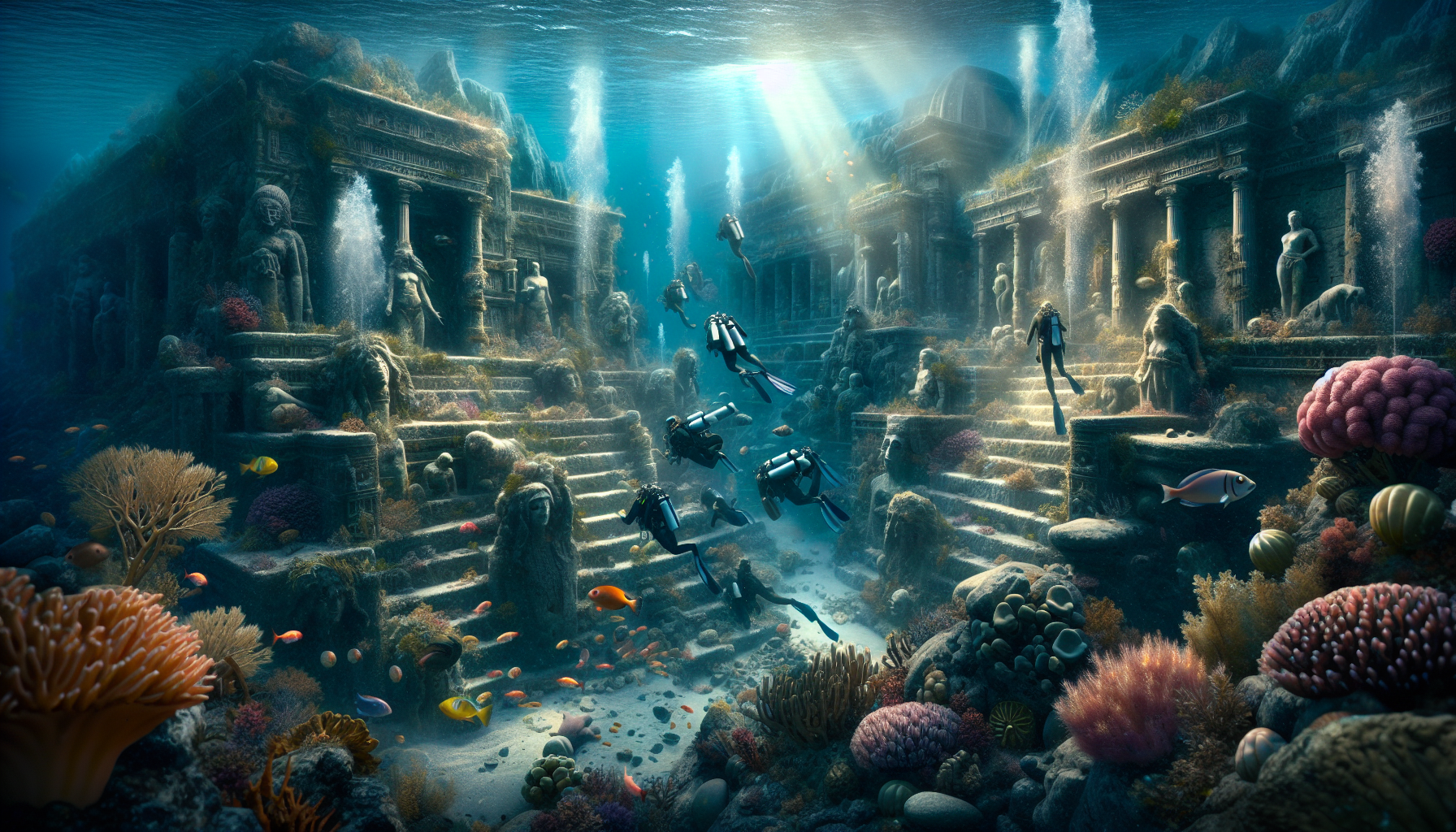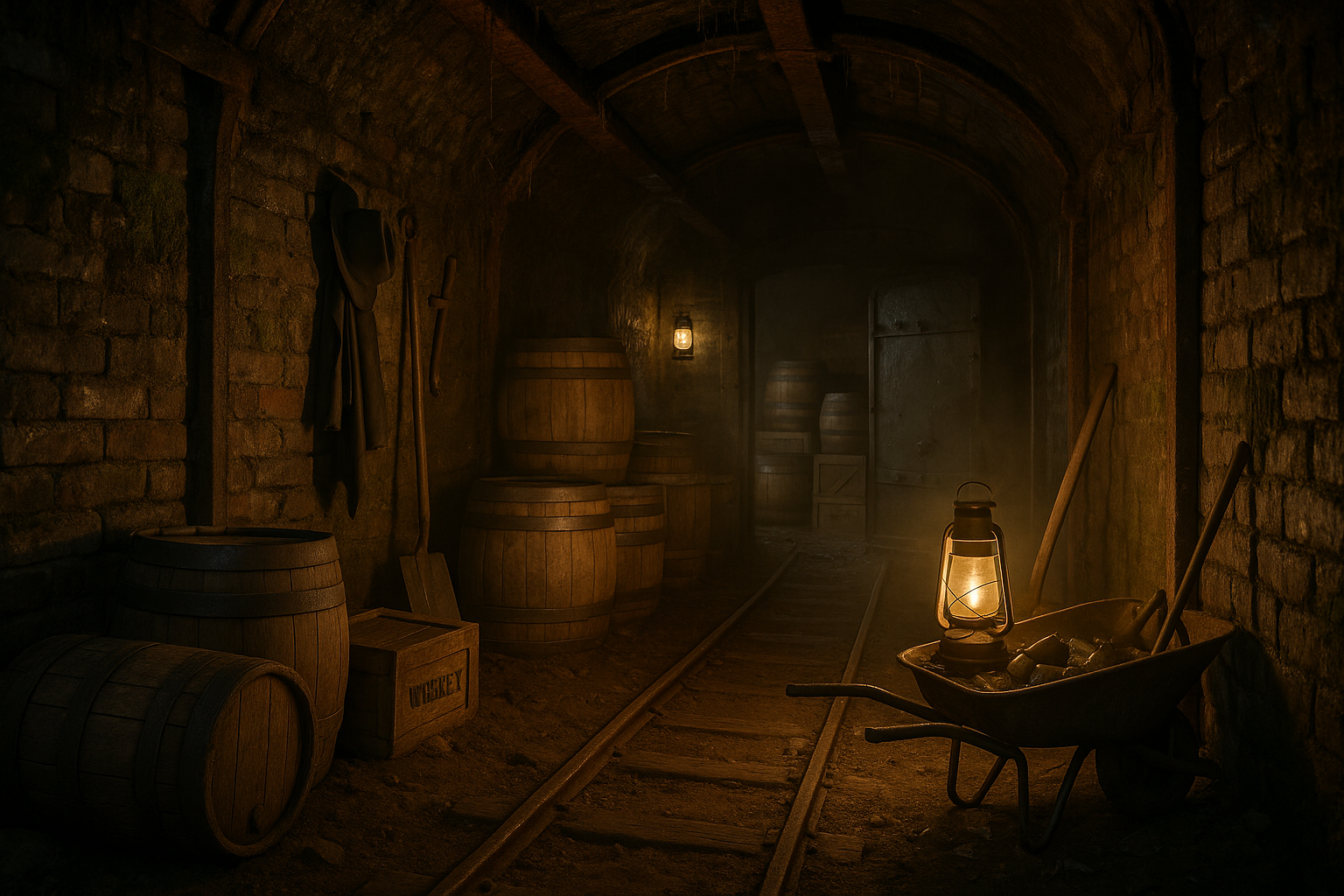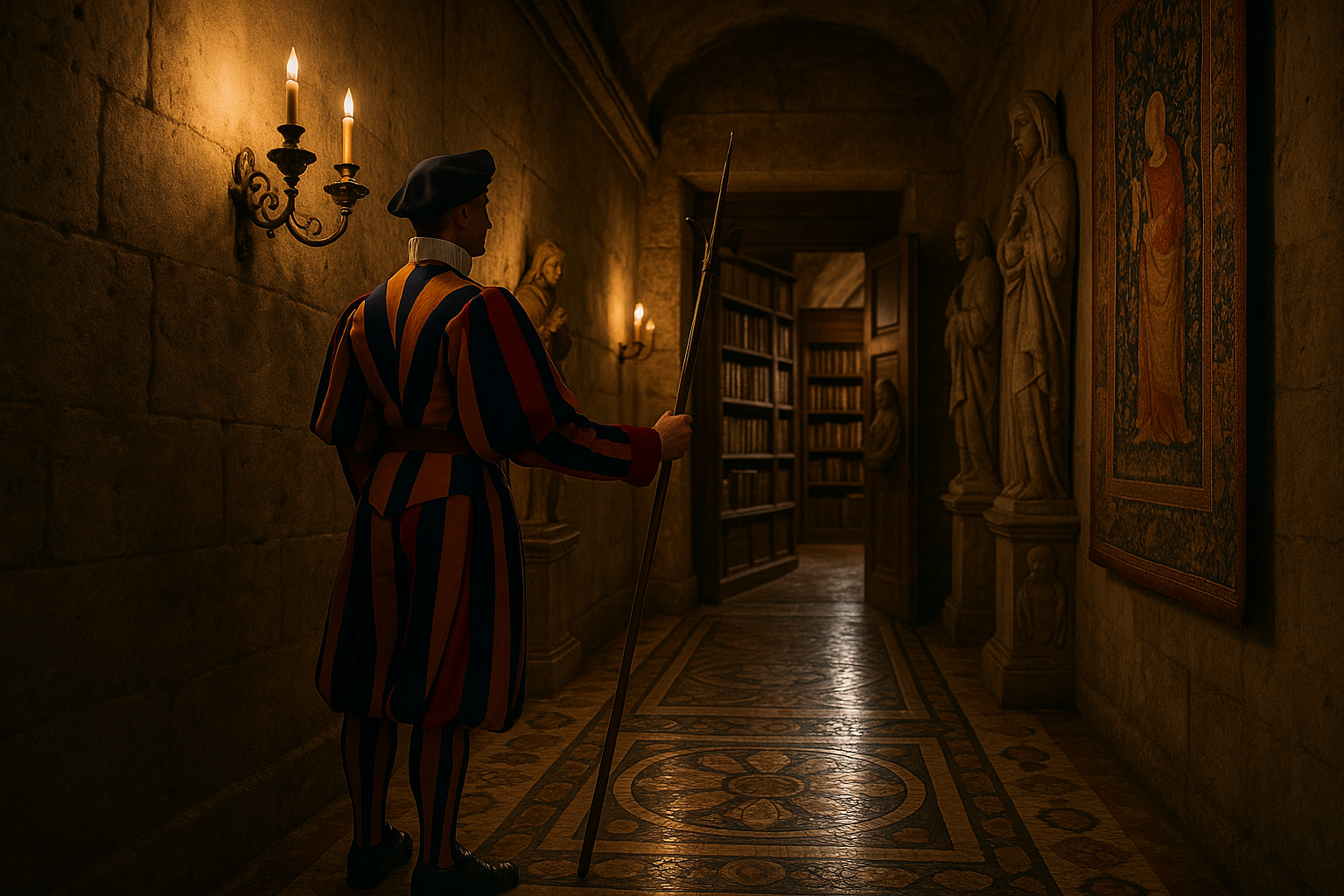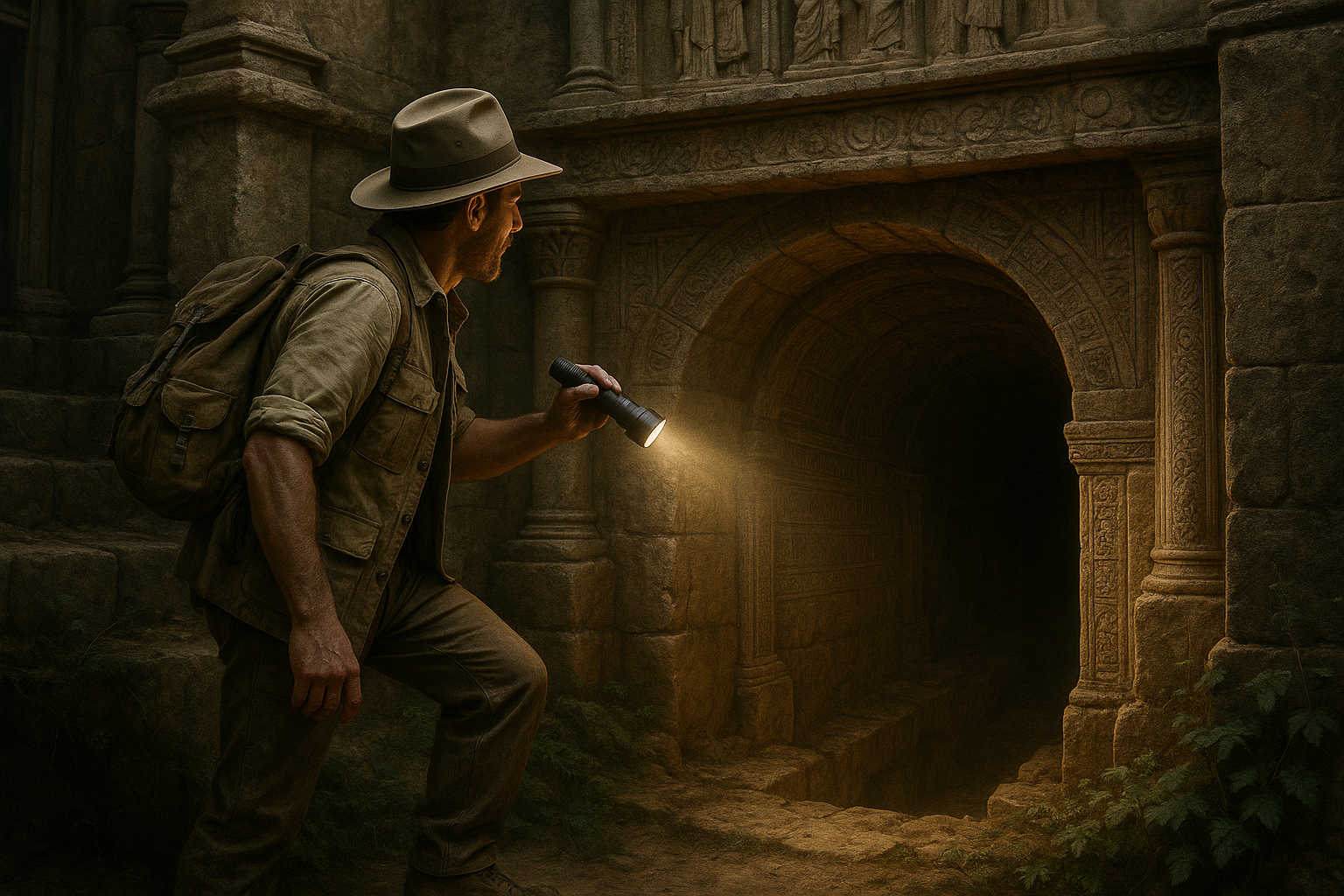In a world where ancient legends and historical mysteries continue to captivate our imagination, few tales are as enduring and enigmatic as the story of Atlantis. From the depths of our oceans to the vastness of our collective consciousness, the lost city of Atlantis has long been the subject of countless theories, speculations, and debates. Was it a utopian paradise that met a catastrophic end? A mere allegory spun by philosophers of old? Or perhaps, is there a nugget of truth buried beneath layers of myth and time? 🌊 As we embark on this journey to uncover the secrets of Atlantis, we aim to sift through centuries of myths and mysteries to reveal the truths that lie beneath.
Our fascination with Atlantis is not merely academic; it taps into a deeper yearning within us all—a desire to discover the unknown, to connect with the past, and to unravel the mysteries that have eluded generations before us. This legendary city, first chronicled by the ancient Greek philosopher Plato over two millennia ago, has sparked the curiosity of historians, archaeologists, and adventurers alike. The tantalizing prospect of a highly advanced civilization lost to the sea has inspired countless explorations and ignited imaginations worldwide. 🌍 In this comprehensive exploration, we will delve into the origins of the Atlantis legend, examining the historical context and the philosophical underpinnings of Plato’s accounts.
As we venture further into the depths of this mystery, we will also address the myriad of myths that have emerged over the centuries. From theories suggesting extraterrestrial involvement to those positing Atlantis as the cradle of human civilization, the interpretations are as varied as they are intriguing. Our journey will be one of skepticism and open-minded inquiry, as we seek to separate fact from fiction and shine a light on the truths that history has obscured. Along the way, we will explore the latest scientific and archaeological findings that bring us closer to understanding the possible realities behind this ancient enigma. 🔍
Ultimately, the story of Atlantis is not just about a lost city; it is a reflection of humanity’s eternal quest for knowledge and understanding. Through this article, we invite you to join us in exploring the rich tapestry of lore and evidence that surrounds Atlantis. Together, we will navigate through the sands of time, uncovering secrets, debunking myths, and revealing truths that challenge our perceptions of history. So, as we set sail on this intellectual adventure, prepare to have your curiosity piqued and your imagination ignited, as we seek to uncover the secrets of the mysterious lost city of Atlantis. ⚓
The Origins of the Atlantis Legend
The legend of Atlantis has fascinated historians, scholars, and adventurers for centuries. The story originates from the writings of the ancient Greek philosopher Plato. In his dialogues “Timaeus” and “Critias,” written around 360 BCE, Plato describes a powerful and advanced civilization that existed around 9,000 years before his time. According to Plato, Atlantis was located beyond the “Pillars of Hercules,” known today as the Strait of Gibraltar, and it ultimately succumbed to a cataclysmic event, sinking into the sea in a single day and night of misfortune.
Plato’s account of Atlantis serves as both a captivating myth and a philosophical allegory. He used the story to discuss themes of hubris, the downfall of civilizations, and the ideal state. The tantalizing possibility of a once-great civilization lost to time has sparked countless theories and explorations, making Atlantis a perpetual subject of intrigue and speculation. Over time, the legend has evolved, incorporating various interpretations, each attempting to unveil the true nature of this enigmatic city.
Plato’s Account: Fact or Fiction?
One of the primary debates surrounding Atlantis is whether Plato’s account should be taken as historical fact or allegorical fiction. Some scholars argue that Plato intended Atlantis to be a cautionary tale about the dangers of hubris and the inevitable downfall of corrupt civilizations. They suggest that the story was meant to provoke thought and discussion about morality and governance among his students. The detailed descriptions of Atlantis, its geography, and society serve as a backdrop for these philosophical discussions, rather than a historical record.
On the other hand, there are those who believe that Plato’s writings were based on actual events or knowledge passed down from earlier civilizations. They argue that the specificity in Plato’s descriptions, such as the dimensions of the city and the advanced technologies, hint at a kernel of truth. This belief has fueled numerous archaeological expeditions and theories attempting to pinpoint the exact location of Atlantis. Despite the lack of concrete evidence, the allure of discovering a lost civilization continues to captivate the imagination of many.
Archaeological Pursuits and Theories
The search for Atlantis has led to numerous archaeological pursuits and theories, each aiming to uncover the location and nature of this elusive civilization. Some of the most prominent theories suggest that Atlantis was situated in the Mediterranean region, drawing parallels between Plato’s descriptions and known ancient civilizations. One such theory is the Minoan hypothesis, which posits that the advanced Minoan civilization on the island of Crete may have inspired Plato’s account of Atlantis. The Minoans were known for their impressive architecture, sophisticated society, and maritime prowess, which aligns with some aspects of the Atlantis narrative.
Another compelling theory places Atlantis in the region of the Azores, a group of islands in the North Atlantic Ocean. Proponents of this hypothesis argue that geological and historical evidence supports the idea that a significant landmass once existed in this area, which could have been the fabled Atlantis. The Azores hypothesis has been bolstered by recent underwater discoveries, such as submerged structures and artifacts, suggesting the presence of an ancient civilization. However, the evidence remains circumstantial, and further exploration is needed to substantiate these claims.
The Role of Geology in Atlantis Research
Geology plays a crucial role in the search for Atlantis, as understanding the Earth’s geological history can provide valuable insights into the plausibility of various hypotheses. One of the key geological considerations is the concept of plate tectonics, which explains the movement of the Earth’s lithospheric plates and the resulting geological phenomena. Plate tectonics has led to the formation and disappearance of landmasses over millions of years, making it a critical factor in evaluating potential locations for Atlantis.
Researchers have also studied the impact of natural disasters, such as earthquakes and tsunamis, on ancient civilizations. These catastrophic events could have contributed to the sudden disappearance of a thriving society, as described in Plato’s account. For instance, the eruption of the Thera volcano, which devastated the Minoan civilization, is often cited as a potential parallel to the cataclysmic event that supposedly destroyed Atlantis.
Additionally, advances in technology have enabled researchers to explore previously inaccessible areas of the ocean floor, uncovering submerged structures and landscapes that may hold clues to the existence of Atlantis. The use of sonar mapping, underwater drones, and satellite imagery has revolutionized the field of underwater archaeology, providing new opportunities to investigate the depths of the oceans for evidence of lost civilizations. As technology continues to evolve, so too does the potential for uncovering the secrets of Atlantis.
Debunking Myths: Separating Fact from Fiction
As the legend of Atlantis has permeated popular culture, numerous myths and misconceptions have arisen, often overshadowing the original narrative. One of the most prevalent myths is the notion that Atlantis was a technologically advanced utopia, far superior to any known civilization. This idea has been popularized by speculative fiction, films, and pseudoscientific theories, but it lacks historical and archaeological support. While Plato described Atlantis as a prosperous and powerful society, there is no evidence to suggest that it possessed advanced technologies beyond those of contemporary civilizations.
Another common misconception is the belief that Atlantis was a singular, unified entity. In reality, Plato’s account suggests that Atlantis was an expansive empire, consisting of a confederation of territories ruled from a central capital. This distinction is important, as it highlights the complexity and diversity of the society, rather than depicting it as a monolithic utopia. Understanding this aspect of the Atlantis narrative allows for a more nuanced exploration of its potential historical counterparts.
Finally, the idea that Atlantis was located in a specific geographic location has led to countless speculative theories, often ignoring the allegorical nature of Plato’s writings. While the search for Atlantis is a compelling pursuit, it is essential to approach the legend with a critical eye, recognizing the limitations of the available evidence. By separating fact from fiction, we can better appreciate the enduring allure of Atlantis and its impact on our understanding of ancient civilizations.
Modern Interpretations and Cultural Impact
The legend of Atlantis has transcended its origins, becoming a cultural touchstone that continues to inspire art, literature, and exploration. Modern interpretations of Atlantis often reflect contemporary concerns and aspirations, reimagining the lost city as a symbol of both hope and caution. In literature and film, Atlantis is frequently portrayed as a hidden paradise or a cautionary tale of environmental destruction, mirroring current societal issues.
The enduring popularity of Atlantis can also be attributed to its adaptability. The legend has been reinterpreted and reinvented across cultures and generations, each adding their unique perspective to the narrative. From ancient philosophers to modern filmmakers, the story of Atlantis serves as a canvas for exploring human nature, ambition, and the consequences of hubris.
As we continue to seek answers about Atlantis, it is essential to consider the broader cultural and historical context in which the legend was born. By examining the myths and realities of Atlantis, we gain a deeper understanding of the ancient world and the timeless themes that resonate across time and space.
Comparing Theories: A Look at the Evidence
Given the diverse range of theories surrounding the location and nature of Atlantis, it is essential to compare the evidence supporting each hypothesis. By examining the strengths and weaknesses of these theories, we can better assess the plausibility of each and gain a clearer understanding of the legend’s origins. The following table provides an overview of some of the most prominent theories and their supporting evidence:
| Theory | Location | Supporting Evidence | Challenges |
|---|---|---|---|
| Minoan Hypothesis | Crete, Mediterranean | Advanced civilization, similar geography to Atlantis | Lack of direct evidence linking Minoans to Atlantis |
| Azores Hypothesis | North Atlantic Ocean | Submerged structures, historical accounts | Insufficient geological evidence |
| Antarctica Hypothesis | Antarctica | Theory of prehistoric civilization in a warmer climate | Lack of evidence and harsh environment |
As illustrated in the table, each theory presents unique challenges and opportunities for exploration. The Minoan hypothesis is grounded in historical parallels but lacks definitive evidence linking the Minoans to Atlantis. The Azores hypothesis benefits from recent underwater discoveries, yet remains speculative without more substantial geological proof. The Antarctica hypothesis is perhaps the most ambitious, but the absence of concrete evidence and the logistical difficulties of conducting research in such a remote and inhospitable region pose significant obstacles.
While the search for Atlantis continues, it is essential to approach the legend with an open mind and a critical perspective. By comparing the evidence and evaluating the plausibility of each theory, we can gain valuable insights into the enduring mystery of Atlantis and the allure of lost civilizations.
For a deeper dive into the theories surrounding Atlantis, consider watching this insightful video from the History Channel: Atlantis: The Lost Empire. 🏝️

Conclusion
In conclusion, the exploration into the enigma of Atlantis serves as a fascinating intersection of mythology, history, and scientific inquiry. Throughout this article, we have journeyed through the depths of ancient texts, modern archaeological discoveries, and speculative theories that have persisted over centuries. By dissecting the narrative of Atlantis, originally brought to us by Plato, we have uncovered how this legend has been both a source of inspiration and a subject of controversy among scholars, historians, and enthusiasts alike.
We began by exploring the origins of the Atlantis myth, rooted in Plato’s dialogues, “Timaeus” and “Critias.” Here, the philosopher describes a utopian civilization that succumbed to the wrath of the gods and was ultimately submerged beneath the ocean. This vivid portrayal has sparked the imagination of countless individuals and led to numerous interpretations about its true location and existence. We examined the various theories suggesting possible sites for Atlantis, ranging from the Mediterranean to the Caribbean, each presenting compelling yet unverified claims.
Furthermore, we addressed the role of modern technology and scientific advancements in the search for Atlantis. Techniques such as satellite imagery, underwater archaeology, and geological surveys have provided new perspectives and fueled debates over whether Atlantis was a real place or merely a cautionary tale invented by Plato. Despite the absence of definitive evidence, the allure of discovering a lost civilization continues to captivate the minds of researchers and adventurers.
We also delved into the cultural impact of the Atlantis legend, highlighting its influence on literature, film, and popular culture. The idea of a lost city, advanced in its knowledge and technology, resonates with the human desire to explore the unknown and discover hidden truths about our past. Atlantis has become a symbol of mystery and wonder, encouraging creative interpretations and artistic expressions across various media.
Importantly, we considered the lessons that the Atlantis narrative imparts about human nature, society, and environmental stewardship. The tale of a once-great civilization destroyed by its hubris serves as a timeless reminder of the potential consequences of unchecked ambition and ecological neglect. In an era where environmental challenges and societal complexities abound, the story of Atlantis urges us to reflect on our own world and the legacy we wish to leave behind.
The enduring mystery of Atlantis invites both skepticism and belief, challenging us to approach it with a balanced perspective. As we continue to unravel the secrets of this legendary city, it is crucial to remain open to new evidence and interpretations while acknowledging the boundaries between myth and reality. The quest for Atlantis is not just about uncovering a lost city but about understanding the broader context of human history and our place within it.
As we conclude this exploration, I encourage you to share your thoughts and insights about Atlantis. Whether you are a skeptic or a believer, your perspective contributes to the ongoing dialogue surrounding this enigmatic subject. Engaging in discussions, sharing this article with others, or diving deeper into related research can foster a richer understanding of the myths and truths that shape our world.
If you’re interested in exploring more about Atlantis and related topics, here are some valuable resources:
– “The Atlantis Encyclopedia” by Frank Joseph: An extensive compilation of theories and stories surrounding the lost city.
– National Geographic’s article on Atlantis: An exploration of the various hypotheses and scientific investigations into Atlantis.
– Smithsonian Magazine’s feature on the search for Atlantis: A detailed look at the historical and archaeological pursuits of finding Atlantis.
In embracing the mystery and magic of Atlantis, we also embrace the endless possibilities of discovery and knowledge. Let the story of Atlantis inspire your curiosity and imagination, urging you to delve into the mysteries of our world and share your findings with others. After all, the search for truth is a journey best undertaken together, with open minds and adventurous spirits. 🌊✨
- Explore the origins and interpretations of the Atlantis legend.
- Examine the evidence supporting various theories about its location.
- Understand the cultural impact and enduring appeal of Atlantis.
The quest to uncover the secrets of Atlantis may never reach a definitive conclusion, but the journey itself offers valuable insights into the nature of myth, history, and human curiosity. As we navigate the complexities of this timeless legend, we are reminded of the power of storytelling and the enduring allure of the unknown. 🌊
Toni Santos is a visual storyteller and artisan whose work explores the quiet power of what lies beneath. With a deep fascination for subterranean and hidden architecture, Toni uncovers the layers, voids, and forgotten spaces that shape our built environment from the shadows.
His art is a journey through the unseen — from ancient underground chambers to sealed passageways, service tunnels, and foundations buried in time. Each creation tells a story of silence, secrecy, and structure — revealing how absence and concealment can be just as meaningful as what’s visible above ground.
Whether working through visual compositions, architectural studies, or symbolic handcrafted pieces, Toni captures the soul of hidden spaces. His work bridges art and archaeology, blending design with discovery. Trained in visual design and traditional techniques, Toni creates with intention. His pieces don’t just depict — they interpret, inviting viewers to rethink what space, memory, and architecture mean when they’re hidden from view.
As the creative force behind Vizevex, Toni shares this perspective through curated visual narratives, symbolic collections, and interpretive essays that give voice to the quiet geometries beneath our feet.
His work is a tribute to:
The mystery of spaces built to be forgotten
The symbolism embedded in foundations, voids, and passageways
The timeless connection between human intention and hidden structure
Whether you’re an artist, an urban explorer, or someone fascinated by the unseen frameworks that support our world, Toni invites you into a realm where architecture becomes myth — one corridor, one layer, one buried story at a time.





